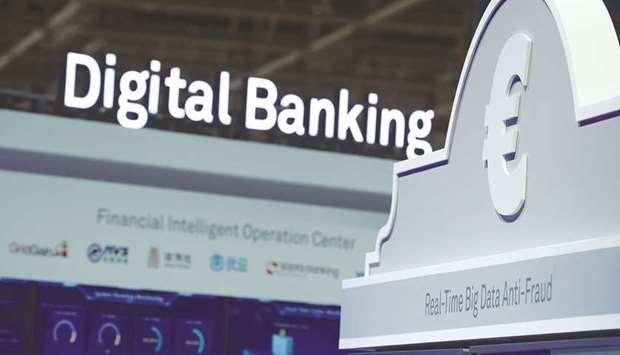Blockchain technology, an unalterable digital information recording system, is increasingly being discovered as a useful tool by Islamic finance institutions and banks for complex financing contracts and Shariah-compliant transactions, as well as to drive innovation in the industry and improve transparency and traceability of financial transactions.
The first Islamic bank starting to facilitate blockchain was Emirates Islamic, part of the UAE’s Emirates NBD banking group, which as early as in 2017 began integrating the technology into cheque-based payment processes to strengthen their authenticity and minimize potential fraud.
UAE-based Al Hilal Bank in November last year became the world’s first Islamic bank to execute a sukuk transaction via blockchain on the Abu Dhabi Global Market financial center. The system, based on the Ethereum blockchain, was developed by Dubai-incubated fintech Jibrel Network.
“We are proud to be the first bank to launch a ‘smart blockchain Islamic sukuk’,” said Alex Coelho, CEO of Al Hilal Bank, listing the advantages of using the technology as “cost efficiency, robust Shariah-compliance and the unlocking of new opportunities.”
Saudi Arabia’s Islamic Development Bank (IDB) – through its private sector division Islamic Corp for the Development of Private Sector (ICD) – began to co-operate with crypto currency fintechs to develop smart contracts and other blockchain-based innovations for Islamic finance. One of its partners is iFinTech Solutions, a Tunis-based fintech, which is working on developing blockchain products to solve liquidity management issues and commodity transactions in Islamic finance, as well as interbanking relations between conventional and Islamic banks to ensure their Shariah-compliance.
“Information technology will always play an important role in the financial system,” said ICD’s new CEO Ayman Sejiny, adding that “we will consistently pursue our strategy of service orientation and help our partners with innovative Shariah-compliant fintech solution.”
In another move, the IDB’s Islamic Research and Training Institute entered co-operations with fintech firms Ateon from Riyadh and SettleMint from Dubai to work on blockchain-based smart contracts in order to create Shariah-compliant financial products and automate the entire contractual process for Islamic finance institutions.
There are also some Islamic crypto currency startups that deploy blockchain technology, among them Dubai-based OneGram and Malaysia’s HelloGold, as well as Islamic microfinance firm Blossom Finance from Indonesia. All these companies have been approved by Islamic scholars to offer Shariah-compliant financial products.
Applications of blockchain in Islamic finance are manifold, but three core utilisations are of particular importance. One has been already mentioned as being smart contracts for Islamic finance transactions, covering the management of profit sharing agreements, agency arrangements and partnerships, reducing uncertainty for all stakeholders and reaching best possible legal clarity.
Another application is cloud storage, which provides access to all the necessary information of Islamic finance transactions for banks and customers to avoid conflicts, maintain and foster client partnerships and increase transparency. Since blockchain combines the security of cryptography and the storage and transmission of data in coded form with peer-to-peer networks to create a shared database of transactions, data is stored digitally with ease, unalterable and openly accessible, which makes Islamic finance transactions, investments and financing agreements openly verifiable processes for all stakeholders.
Last but not least, blockchain in Islamic finance combined with mobile technology can also be used for Islamic communities in developing and poorer countries that lack basic infrastructure. As a low-cost technology, it can make banking processes and transactions accessible through simplistic smartphone applications while at the same time ensuring traceability and transparency of banking deals for retail clients.

A euro symbol sits on a digital banking exhibition at the Huawei Technologies stand at the CeBIT 2018 tech fair in Hanover, Germany (file). Blockchain, an unalterable digital information recording system, is increasingly being discovered as a useful tool by Islamic finance institutions and banks for complex financing contracts and Shariah-compliant transactions, as well as to drive innovation in the industry.


